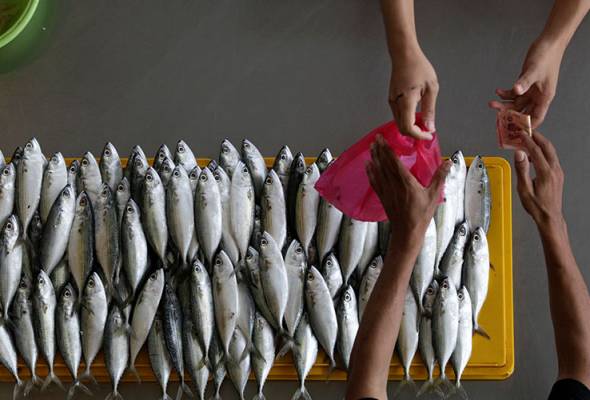GEORGE TOWN: The many restrictions placed on human activity during the movement control order (MCO) have made it difficult for traders to sell their vegetables and seafood.
Vegetable farmers nationwide are forced to dump their vegetables as they cannot reach the consumers like before. Likewise, the number of places that are allowed to sell seafood, such as markets and restaurants, has dropped significantly.
“Demand for vegetables has dropped. Consumers are shopping less due to the MCO, while many markets and restaurants are not allowed to open, and there are also no more tourists,” Federation of Malaysian Vegetable Farmers Association chairman Tan So Tiok told theSun.
He said the lower demand has also caused a severe drop in prices of certain vegetables at the wholesale level.
“Cucumbers that used to sell for RM1 each, are now only selling for 40 sen. Prices of leafy vegetables such as bayam and kangkung have also gone down.
“Prices have gone so low that we can’t even cover the cost of growing them.”
Tan said on March 30, his association had sent a letter outlining the farmers’ troubles to the Agriculture and Agro-Based Industry Ministry, but has yet to receive a reply.
“We predict that by April 27, our farmers will lose up to RM22.75 million. Thus, we are seeking a government incentive of RM90 per metric tonne of vegetable output,” he said.
Fishermen too are finding it difficult to get their catch to the market as there are fewer distribution lines.
Balik Pulau Fishermen Association president Arshad Omar said since the MCO was imposed four weeks ago, fishermen have been struggling to make ends meet.
“Our monthly income has been halved. For instance, someone who used to earn RM1,000 a month is getting only RM500 a month now,” he said.
Even with the aid promised by the government, fishermen are still having difficulties, he added.
“There is still a lot of fish in the sea, but there are not enough places where we can sell them now.”
He said the tightening of movements for suppliers has made it difficult for fishermen to sell their catch to either wholesalers or retailers.
Arshad said the number of places that serve seafood has also been reduced sharply.
“Naturally, the demand will also drop,” he pointed out.
He said the night markets have yet to reopen, so fishermen can only sell their catch during the day.
“Even then, the supply is so much more than the demand.”
Arshad said the 5,000 fishermen in Penang now go out to sea only three or four times a week, compared with daily trips previously.
“During their spare time, they fix their nets and fishing vessels. They are also spending more time with their families,” he said.
Seberang Prai Fishermen Association president Mahadi Mat Rodzi said to improve the distribution process, the association now issues letters to lorry operators to certify that they are ferrying seafood.
Read this story in our iPaper:













